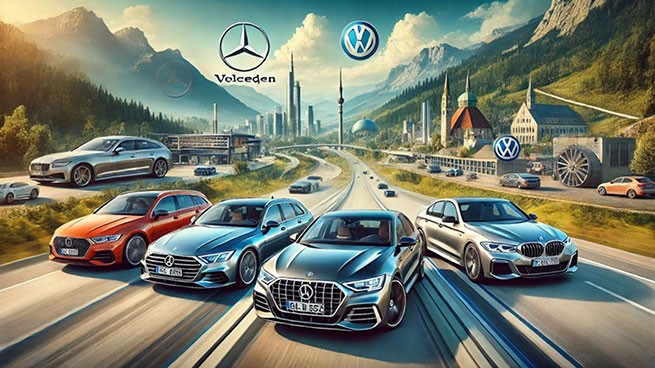The crisis of the German auto industry and energy policy: economic and geopolitical consequences for Europe.
Germany, historically the industrial powerhouse of Europe, is currently facing a serious crisis in its key sector – the automobile industry. German brands such as Volkswagen, BMW and Mercedes have long symbolized quality and reliability, and the automobile industry has provided a significant part of the country’s GDP. However, in recent years, demand for cars has fallen, competition has intensified, and internal and external factors are putting pressure on the industry, posing a threat to the entire European economy.
Deepening crisis in the automobile industry
Germany's auto industry is suffering from declining sales on both the domestic and global markets. In Europe, it is currently selling 2 million fewer cars per year than before the pandemic, which has hit Volkswagen particularly hard, with up to 500,000 sales lost, equivalent to the closure of two major factories. The reason is not the poor quality of the products, but the changing market conditions – declining demand for cars, falling incomes in Europe and increasing competition in the global market.

Image created by AI
Germany's manufacturers are facing a serious threat from China, which is actively developing its automobile industry, including the production of electric cars. Despite China's success in “green” technologies, its role in climate change raises serious questions. China accounts for 30% of global CO₂ emissions – 12.5 billion tonnes in 2021. This is more than three times the emissions of the whole of Europe, about 3.3 billion tonnes of CO₂..
China's electric vehicle industry relies on coal-fired power plants to supply 57% of the country's energy needs, making China's green technology far from as green as it claims.
Germany's Energy Policy: Abandoning Nuclear Energy
One of the key factors that is hurting Germany's competitiveness is the country's energy policy. Germany has decided to abandon nuclear energy, which is one of the cleanest and cheapest forms of electricity production.
Nuclear power produces just 12 grams of CO₂ per megawatt-hour, compared to 820 grams of CO₂/MWh from coal-fired power plants and 450 grams of CO₂/MWh from gas-fired power plants. The closure of nuclear plants has left Germany dependent on more expensive energy sources such as liquefied natural gas (LNG) from the United States.
The cost of generating nuclear energy ranges from $40 to $60 per megawatt-hour, while renewable energy costs an average of $50 to $160 for the same amount.if infrastructure costs are taken into account. This transition led to higher energy prices and a weakening of the competitive position of German industry.
Impact on the economy and EU
The crisis in the German automobile industry has far-reaching consequences for the EU economy. Germany is the largest economic engine in the EU, and many companies across Europe are focused on supplying German car manufacturers. For example, the Czech Republic, Slovakia, Poland and Hungary are heavily involved in the supply chain of parts and components for German car factories. A reduction in demand for German cars and the closure of factories will inevitably cause an economic downturn in these countries, leading to increased unemployment and a decrease in industrial activity.
Author's opinion: And again, everything is classic: who is to blame and what to do? Although, probably, now there is no one who Maybe at least do something.







More Stories
Bloomberg: Europe will hardly feel the end of Russian gas transit through Ukraine
The New York Times shared details of the pager operation
Murder suspect Farion asks to be left alone "behind bars"